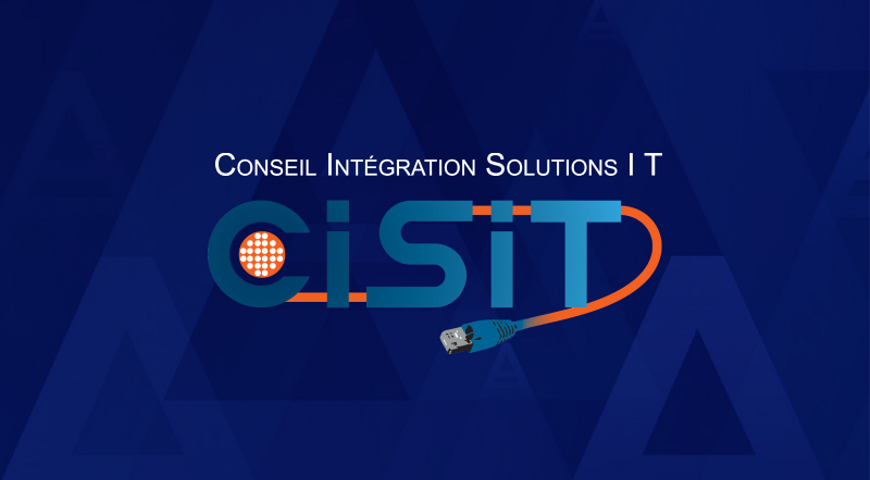
Whether you’re an IT director or an executive in the health care industry, securing your patients’ sensitive data and other critical information is pivotal to driving seamless operations. As data is transmitted between different points of care, even the smallest changes in health care systems can lead to the mishandling or loss of critical information, and unfortunate events snowball quickly. Ensuring the security, accessibility and functionality of health data is one of the most important factors for maintaining high-quality, routine patient care and even plays a role in life-saving emergencies.
In this article, we break down the importance of proper health care data storage and management, introduce the most common methods of storage, cover the challenges of health care industry data protection, and provide actionable data-storage best practices for health care industry leaders.
The importance of health care data storage beyond regulatory compliance
Health care data includes patient records, demographics, patient insurance, administrative information and more. Interoperability is key to handling health data, as it is shared between different parties as the patient receives care. Allowing the authorized access, exchange and cooperative use of important patient information within a health care organization or transversely with regional or national parties directly impacts the efficiency, quality and safety of the patient’s experience.
Regulatory compliance standards such as HIPAA and PCI DSS are designed to ensure core protection of the diverse types of data handled in the health care industry, including health and credit card information. Consequences of compliance violations include fines, increased risk of cyber breaches and reputational and legal repercussions. Satisfying compliance standards is at the forefront of every health care executive’s mind when making critical decisions involving health care data. However, to future-proof data protection, we need to dissect the significance of safeguarding health care data beyond satisfying regulatory compliance.
Here are some influential factors in health care data storage and management protection.
Marrying accessibility and functionality
The interoperability of health care systems marries both functionality and accessibility of health data to provide uninterrupted and reliable patient care. As volumes of data grow and many patients receive care that is interconnected, addressing the challenges in interoperability focuses on bettering the accuracy, clarity and security of health data as it is exchanged from one system to another. As critical patient data is transferred, for example, from one health care provider to another, data is at risk of tampering, loss and exploitation. It is critical to mitigate these risks by adopting and continuously improving technologies, practices and procedures.
Patient trust and safety
With an ethical and legal obligation to protect patients and their data, extending protection measures that exceed regulatory compliance standards demonstrates your commitment to your patients. Additionally, data storage and management protection ensure the success of future visits by keeping patient records, clinical software and admissions processes secure from malicious activity or natural disasters.
Storage and infrastructure optimization
Data storage infrastructure optimization (SIO) identifies areas of improvement in data storage environments, including storage utilization, architecture and technologies. Optimizing health care data helps reduce storage costs, streamline efficiency and ensure data is readily available to health care professionals. SIO is intended to improve data accessibility and usability for the user while making it easier to monitor, manage and protect storage security for IT professionals.
Traditional health care data storage solution options
Continuous developments in modern medicine have introduced new health care tools and technology used in patient care. Often, these tools output copious quantities of structured and unstructured data. Structured data includes highly organized documents with demographic information, lab test and patient information, as well as unstructured data that is more undefined. This includes medical images, clinical notes, discharge letters and audio recordings. Employing traditional health care data storage options is vital to protecting electronic health records (EHR), digital pathology reports, next-generation sequencing results and other sensitive information. The common methods of data storage include on-premises, cloud and hybrid measures.
Let us define each type of data storage below.
On-premises Healthcare Data Storage
When it comes to patient-related information, on-premises (or on-prem) data storage is the most common method of managing and securing health care data. One of the key benefits of on-prem data storage is that IT professionals gain a higher level of control over patient-related assets. This method of data storage gives IT security direct oversight over patient data and offers greater flexibility when fine-tuning performance in alignment with the health care organization’s demands.
Although there are several security benefits to on-prem storage, there are a few drawbacks. Security of on-prem environments is a double-edged sword. While the data in on-prem environments provide better control by enabling organizations to enforce their own security measures, the result is that health care establishments become fully responsible for securing it. Additionally, on-prem data storage lacks scalability, adding complexity to health care providers as they reach maximum data storage capacity and contributing to greater upfront costs.
Cloud Healthcare Data Storage
Health care providers are increasingly moving data storage to the cloud because cloud storage has several advantages over on-prem storage — scalability being one of the core reasons. Unlike on-premises storage, cloud allows health care organizations adjust storage capacity in fluctuation with growing needs, enabling them to pay for the storage they need without exhausting resources toward additional physical hardware or software. Also, cloud-based storage environments are regarded as being easier to protect, since cloud storage providers typically include basic security measures such as firewalls, and encryption and backup options. However, as we have noticed with some cloud storage providers — such as Google — they are not solely responsible for protecting stored assets.
Storing health data in the cloud comes with caveats, including lack of control over management and storage infrastructure which is commonly provisioned by the cloud storage provider. Another growing concern is the risk of patient data privacy. Depending on the cloud storage vendor, country and laws, data privacy is crucially important to protect sensitive information of patients and personally identifiable information (PII).
Hybrid data storage approach
As the name suggests, hybrid data storage is an approach that combines the best advantages that on-prem and cloud storage have to offer. In hybrid storage environments, health data maintains flexibility, scalability, performance and control at low cost. In a hybrid model, the health care organization uses on-prem and cloud storage environments to capitalize on the benefits of each. Sensitive data can be stored on-premises to ensure maximum control, while moderately sensitive data is housed in the cloud. A hybrid approach lets health care IT leaders prioritize, monitor and protect sensitive assets more closely with greater efficiency — without exhausting organizational resources on moderately sensitive assets that can be siphoned to the cloud.
Data privacy vs protection: A balancing act in health care
Juggling the privacy, protection and accessibility of health data is a balancing act. Health care leaders need confidence that patient information is secure, safeguards their privacy and meets compliance requirements without disrupting the daily workflows and data accessibility of authorized health care workers. To find the right solution, we need to analyze the predominant challenges in the health care industry surrounding data storage and management.
Top three data storage challenges in health care
The top three roadblocks health care organizations face in data storage and management, include:
Data processing
In addition to balancing data privacy and protection, data processing is influential to efficiency in health care organizations. One example of data processing in health care is analysis of raw data to prescribe medication. If data is not processed accurately, errors could lead the patient to be prescribed the wrong drug. Data processing can exhaust power consumption, occupy substantial amounts of memory and increase costs.
Data volume and complexity
Health care providers and executives are conscientious of the mounting volumes of data generated daily. EHRs, medical imaging, genomic data and administrative information continuously grow alongside the demands for secure, high-capacity data storage. IT security professionals grapple with protecting and managing diverse data, including structured and unstructured assets integral to patient history. Advanced storage infrastructure addresses these challenges by accommodating vast types of data at high volumes.
Stronghold on outstanding patient care
The ability to relay critical and sometimes life-saving information to patients is central to delivering outstanding patient care. Data accuracy is fundamental, but the ability to translate data into actionable insights and visual reports helps providers and patients start meaningful discussions and make informed decisions that impact patient outcomes. Introducing the best-fit analytical tools that facilitate seamless integration between data storage and health care workflows will be game-changing for the industry.
Modern trends in health care data storage: Revolutionizing data protection infrastructure
Modern trends and improved technologies have revolutionized health care data storage. IT security experts and health care professionals stay attuned to new developments to overcome common challenges with the goal of harnessing enhanced diagnostics and treatment plans to deliver quality patient care.
Cloud-based solutions
Cloud-based solutions offer scalable, flexible storage capabilities that are well suited for resource-constrained health care organizations. Cloud has been one of the most pivotal trends in the digital landscape and has opened opportunities to businesses of all sizes across verticals. In addition to accommodating expanding data volumes, cloud has been a crucial tool for accessibility and collaboration. Cloud allows clinicians to access patient information readily and securely from anywhere. This benefit has been tremendous in facilitating telemedicine initiatives and fostering successful remote patient monitoring.
Artificial intelligence (AI) and machine learning (ML) in health care
Artificial intelligence (AI) and machine learning (ML) are shaping health care data storage, management and utilization. Clinicians are equipped to provide faster recommendations with high accuracy using AI algorithms to analyze vast datasets and identify abnormal patterns, so decision making is more informed. Health care executives and IT must adopt data storage solutions that withstand the computational demands of AI and ML.
Improved analytics and data visualization
Recent health care tools in data analytics provide intuitive, strategic and operational views into patient experience. There are several health care software tools available with interactive dashboards to help patients and clinicians better understand reports over time, across demographics and even around the world. These innovations provide health care professionals with valuable graphics, apps and widgets to help present data to patients, clinicians and health care professionals.
The result of modern data solutions for health care
Recent innovations in health care data have accelerated performance and minimized inefficiencies across the industry. Clinicians are empowered to make swift, accurate decisions by using visualizations and tracking parameters throughout the patient’s experience. This clarity is essential to effective communication between medical staff and helps eliminate wait-times.
Best practices for health care data management and security
Delivering quality patient care relies on effective data management. Health care executives, professionals and IT experts are encouraged to institute data management best practices.
Backup and disaster recovery
A foundational combination of data protection, backup and disaster recovery is key to mitigating health care data loss. Whether stuck by natural disasters, hardware failures or cyberattacks, health care organizations need backup and recovery plans that provide a safety net. These solutions are imperative to the continued success of delivering premium patient care.
Governance and compliance
Data governance and compliance are integral to maintaining the security and accuracy of patient data. Setting clear governance policies guides the organization’s standards for data quality, privacy and compliance. These policies help health care executives build an organizational culture that bolsters healthy data stewardship, transparency and security.
Integration and interoperability
Interoperability allows different health care systems to communicate and share patient data securely while streamlining operations. It enables a holistic view of patient medical history, test results and vital information across multiple parties. Integration and interoperability results in fewer data misinterpretations, errors and miscommunications. By allowing data to seamlessly flow between health care systems and providers, diagnoses and treatment decisions are delivered with more accuracy.
Discover cutting-edge storage solutions for healthcare data. Enhance patient care and optimize your operations
The Importance of healthcare data storage is vital for patients
Data storage and management are indispensable pillars of the health care industry. Following the best practices of data storage and management cannot be overstated, as they reinforce every facet of health care, from patient care to clinical decision making. Robust data storage that is combined with backup and disaster recovery provides powerful assurance to health care organizations in the face of unforeseen disasters or cyberattacks.
When we look at data protection holistically, governance, technologies, strategies and regulatory frameworks comprise comprehensive storage and management practices. Seamless integration and interoperability are additional aspects that influence coordination, orchestration and operations throughout patient care. Overall, your ability to deliver top-notch care while protecting patient information is intrinsically linked to the efficiency of its data storage and management practices.
About Acronis
A Swiss company founded in Singapore in 2003, Acronis has 15 offices worldwide and employees in 50+ countries. Acronis Cyber Protect Cloud is available in 26 languages in 150 countries and is used by over 21,000 service providers to protect over 750,000 businesses.



